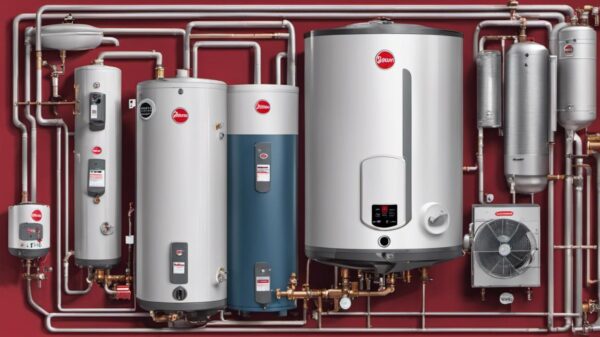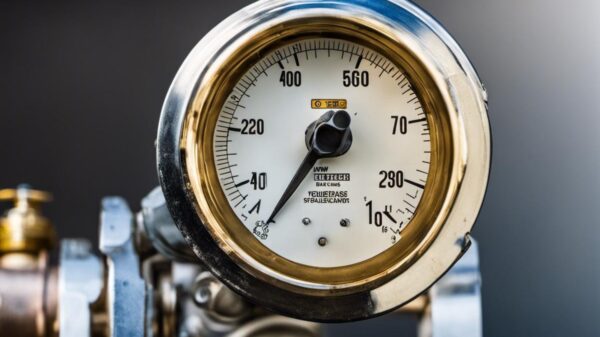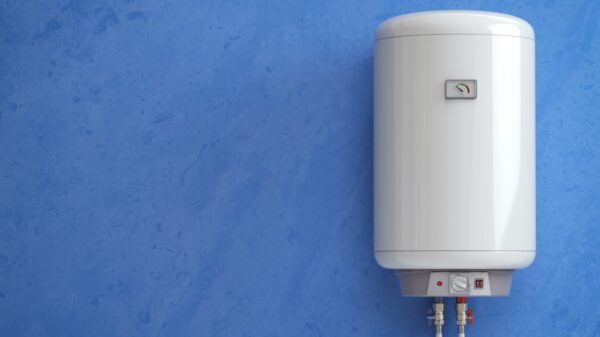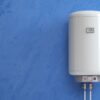The quality of water consumed and used daily is a topic of pressing concern for a multitude of sectors – from individual households to large-scale industries. The critical issue being addressed in this discourse is the detrimental effects and challenges posed by hard water. This unavoidable problem has rippling effects on our health, the effectiveness of our services, and the cost of maintaining our facilities. But armed with a thorough understanding of the issue, we can then scrupulously assess the solutions available in the market, anticipate future innovations, evaluate their economic viability, and understand their market potential. Furthermore, a strategic approach towards expansion and reach can help ensure maximum utility of these solutions.
Understanding Water Quality Matters
The term “hard water” has become quite prevalent in recent years, with it frequently surfacing in various industries from manufacturing to hospitality. Gaining a firm grasp of its implications is tantamount to successfully navigating today’s complex market dynamics. So, we ask, why is understanding the implications of hard water essential?
Firstly, for the uninitiated, hard water refers to water with high mineral content, specifically calcium and magnesium. While not harmful to human health, the impact of hard water on equipment, appliances, and even the beauty industry, is substantial. Each of these industries is a significant player in today’s market trend and growth.
In the manufacturing sector, equipment longevity is directly correlated to the quality of water used. Hard water creates mineral deposits known as scale, which can clog pipes and wear down equipment, escalating repair costs and reducing operational efficiency. Being aware of this allows businesses to incorporate appropriate water treatment systems into their operational model, increasing equipment lifespan, and mitigating costly repairs.
This awareness also carries significant weight in the hospitality industry. The taste and appearance of beverages like coffee and tea can be substantially impacted by hard water. Not to mention unpleasant guest experiences with spotty glassware and flat, lifeless hair. Recognizing the implications of hard water allows the industry to take measures that ensure the best customer experiences, and therefore, increased client retention.
Meanwhile, in the health and beauty industry, an understanding of hard water implications is pivotal. It could influence the development of products tailored to combat the effects of hard water on skin and hair, thus opening a lucrative, relatively untapped market niche.
Let’s not forget about the booming home appliance market. Appliances such as water heaters, dishwashers, and washing machines are constantly exposed to water, making the hardness an important factor for consideration. Companies could revolutionize their product design, with water hardness in mind, to enhance durability and performance – a clear value proposition for consumers.
The crux here is understanding hard water implications can dramatically shape various industries’ strategies. This knowledge triggers innovation, facilitates customer satisfaction, and fosters growth, strengthening the competitive market position.
The notion of hard water isn’t as hard to swallow when viewed not as an obstacle but a catalyst for innovation. It’s just another salient reminder that success in today’s market isn’t simply about offering a product or service—it’s about understanding all factors that can impact your offering and using this knowledge to drive continuous solution-oriented innovation. Stay ahead by understanding the implications of hard water.
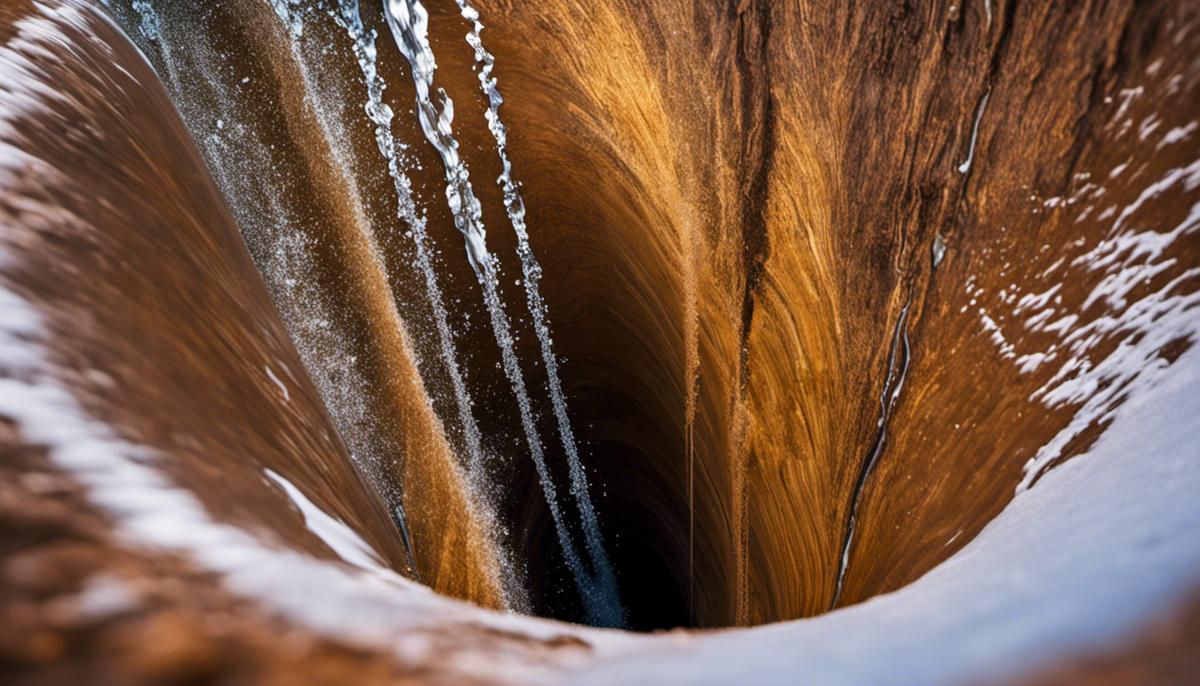
Analysis of Current Solutions
Delving deeper into the contemporary marketplace for tackling hard water problems, one can decidedly unearth an array of innovative solutions from different sectors. Presently, the market teems with offerings varying from water conditioners, filters, softening systems, to water treatment services.
With an increased awareness of the hard water issue, the global water softener systems market, for instance, is projected to draw a growth CAGR of around 7% from 2020-2025, highlighting relentless R&D endeavors and burgeoning demands for advanced water systems.
Among popular options, salt-based water softeners, despite being market stalwarts, are gradually making room for salt-free alternatives due to environmental concerns over salt discharge. Leading water-softening brands are now pioneering salt-free systems aiming for sustainability alongside performance. These are designed to prevent hard water scales without replacing minerals with sodium, offering an ecologically responsible solution that aligns with moderating environmental norms.
Robust growth is also manifested in the water treatment services sector, which relies on comprehensive, specialized services for hard water challenges. Industries often prefer this approach as tailored solutions offer higher efficiency and cost savings, essentially preserving equipment lifespan and productivity. Catering to the industrial segment, several businesses are stepping up with custom hard water treatments designed around specific operational needs.
In the realm of home appliances, manufacturers are ingeniously integrating built-in water softening technologies, especially for essential commodities like washing machines and dishwashers. It’s an astute adaptation born from insights into consumer needs, offering dual benefits – the convenience of automatic hard water processing and elongation of appliance longevity.
Supporting this market trend is the demand curve in the beauty industry. A gradual shift is noted towards personal care products specifically designed to tackle skincare and haircare issues arising from hard water. This niche yet growing segment is meeting global acknowledgment thanks to attractive product pitches coupled with hard water awareness campaigns.
A mention-worthy stride is seen in the digital realm, with businesses providing water testing kits and digital platforms to monitor water hardness, thus facilitating informed decisions and precision solution adoption. It’s a blend of traditional wisdom with digital dynamism, manifesting the transformative traits of the IoT era.
To echo the significant drive towards understanding and mitigating hard water implications, it’s clear that the market is now brimming with diverse, innovative solutions. It is evident that businesses continue to gauge consumer demands and industry needs, shaping their services and products accordingly. Looking ahead, this unwavering quest for solution-oriented innovation in battling hard water promises an exciting future for market participants and consumers alike.

Innovative Solutions
As we navigate the vast expanse of the 21st century business landscape, fresh solutions are being sought for enduring problems. One such omnipresent quandary, particularly in specific geographical areas, is the challenge of hard water. Persistent efforts worldwide have led to innovative approaches that hold the promise to transform traditional strategies tackling this issue.
From a technological standpoint, several breakthroughs await the limelight. Advanced water conditioners have emerged that not only reduce scale build-up in pipes and appliances but also do so without the need for salts or chemicals, making them an eco-friendly alternative. Further along this avenue, promising new water filters are entering the market, offering features such as nanofiltration and ultrafiltration to sieve out stubborn mineral elements causing water hardness.
Similarly, the realm of water softening systems is buzzing with cutting-edge developments. Salt-based water softeners, despite being widely used, fall short in terms of environmental sustainability. The answer to this drawback can be found in ingenious salt-free alternatives that utilize methods like template-assisted crystallization (TAC) and chelation. These technologies efficiently soften water while negating the adverse environmental impact of salt-based counterparts.
Even as technology forges ahead, services pertaining to water treatment are evolving to complement these advancements. In line with the ethos of customer-centric business models, bespoke water treatment services are tailoring solutions to the unique attributes encountered by different industries. This differentiation strategy not only sustains the diversity of industries but also ensures optimum water quality for each specific need.
In resonance with the adage, “prevention is better than cure”, built-in water softening technologies for home appliances have made their inception. Innovations like electronic descaling systems incorporated into water-using appliances represent a holistic approach to addressing hard water issues.
Within the personal care sector, a unique convergence of technology and education is shaping the understanding of hard water impacts on skin and hair. Ground-breaking personal care products and platforms are educating consumers and helping them make informed decisions on tackling these issues.
Cutting-edge water testing kits now allow consumers and industries alike to test water hardness levels swiftly and accurately. This user-friendly approach fosters transparency and empowerment, leading to better decision-making in terms of product selection or service requirement.
Bolstering the fight against hard water is the digital transformation. Whether it’s smart systems integrated into appliances for real-time monitoring of water hardness or platforms connecting consumers to service providers, digital advancements are reshaping this landscape.
In essence, the battle against hard water is proving to be a fertile ground for innovation and strategic development in varied sectors. Resting comfortably on the convergence of science, technology, and business acumen, the solutions emerging in the contemporary scenario not only aim to eliminate problems but do so in a sustainable and efficient manner. The future, therefore, looks promising, and it’ll be interesting to examine how this space evolves. The wheels of progress continue to turn, and there’s no sign of them slowing down.

Economic Feasibility and Market Potential
Delving deeper into the economics of solutions to hard water issues, it becomes clear that these innovative strategies present a strong investment proposition, largely due to their extensive potential for market permeation. Both gargantuan industries and everyday consumers are eager for solutions that curtail the negative implications of hard water, making the market virtually limitless.
Taking the example of advanced water conditioners, their eco-friendly benefits make them a highly appealing option. When considering current market trends towards sustainable and green products, they hold a particularly significant potential for robust market values. These conditioners are not just environmentally friendly but are also a testament to raw economic sense with their longer lifespans and reduced maintenance needs, making them a lucrative investment from a fiscal standpoint.
New-generation water filters offer another brilliant solution, their cutting-edge filtration technologies ensuring high-quality water, which is a high priority need across multiple industries. In addition, the push for health-aware products is escalating in the consumer market, so the substantial value proposition and financial viability of these filters is undeniable.
Innovations in salt-free water softening alternatives continue to disrupt the market. These alternatives are not just home solutions but are valuable in large-scale industries where the need for massive volumes of softened water is paramount. The absence of maintenance and refilling hassles is another ace up their sleeve, instigating an enhanced market appeal.
Customized water treatment services are another goldmine. Their ability to cater to diverse industry needs creates a wide-ranging consumer base, validating their impressive economic viability. From the beverage sector to the beauty industry, tailored solutions to combat hard water effects are, undoubtedly, a savvy business prospect.
Built-in water softening technologies in home appliances offer a direct assault on household issues linked to hard water. This invention is in alignment with the current trend of smart technologies, thus presenting an economically sound innovation with significant consumer appeal.
The personal care sector has smartly capitalized on this issue, offering a plethora of products specifically designed to tackle hard water-induced skin and hair issues. Coupled with the push for personal wellness and self-care seen in today’s consumer behaviors, the return on investment potential is immense.
Added advancements manifest themselves in the form of user-friendly water testing kits that offer accurate measurements and digital platforms designed to keep consumers connected to services. These are prime examples of brands prolifically utilizing digitalization trends, thus securing a significant scope for market growth and financial success.
Hard water implications beg for continuous innovation in associated sectors, an assertion proven by the flourishing market trend. Each solution developed, regardless of whether it’s an advanced conditioner or a hard water suited beauty product, caters to a broad consumer base while also ensuring economic viability. The future of the industry, hence, looks extremely promising with the rising influx of effective, savvy, and customer-centric solutions. Irrespective of the sector, hard water implications instigate a call for reformation, and this response is where the economic viability and potential of these innovations lie.

Expanding and Reaching Out
Tackling hard water issues isn’t just a concern for the home or manufacturing sector; it’s an economic powerhouse with expansive potential. The surge in demand for advanced water conditioners, new-generation water filters, and salt-free water softening alternatives illuminate the urgent market need. With consumers becoming increasingly conscious about water safety, sustainable solutions, and green products, the potential market reach has exploded.
A greater focus on economic sense and prioritizing high-quality water across multiple industries have dramatically accelerated the sector’s growth. The benefits of advanced water conditioners, along with their eco-friendly advantages, are appealing to the progressively green consumer market. Add in the fact that these innovations require minimal maintenance and the economic upsides become even more tangible.
However, there is much more than the home-use market in this game. The advent of customized water treatment services for different industries reflects the market’s potential, especially in larger-scale sectors like food processing or hospitality where softened water is a priority requirement.
Embracing advanced technology has added another layer of appeal, as built-in water softening technologies for home appliances align perfectly with the trend of smart technology. Such developments are not only practical solutions but also lucrative propositions, with substantial consumer appeal that drives substantial return on investment.
Speaking of smart technology, the personal care sector is effectively using innovation to address hard water’s impact on skincare and hair health. These products are establishing a strong presence, with a high-profit potential and a rapidly growing consumer base.
Digital platforms that provide water hardness monitoring and consumer connectivity further illustrate the extensive market growth potential. They harness the unprecedented rise in digitalization, enhancing workflow efficiency, improving customer service, and even enabling faster, more informed decision-making.
Water testing kits, user-friendly and accurate, have simplified water quality control, again capitalizing on the trending consumer desire for health-conscious products. It’s a win-win situation, both from a public health perspective and an economic standpoint.
Consistent innovation is key upholding progress in this sector. The need to conquer hard water’s challenges fuels research and development that constantly evolves with the market’s demands, enabling businesses to meet consumers’ heightened expectations. Continued innovation broadens the customer base, increasing the market share and, subsequently, potential revenues.
Finally, taking into consideration these factors, it’s vital for industry players to effectively strategize expansion. It’s not enough to just create solutions – they must permeate the market. The key to this lies in understanding industry climates and customer needs. Adept knowledge of prevalent trends, effective utilization of digital platforms, and tailoring solutions to fit different industries’ requirements are all prerequisites to ensuring the business thrives.
In essence, it’s not enough to recognize the issue and create solutions; businesses must understand the customer, the market, and future trends. By doing so, they can effectively design a roadmap to growth, ensuring their business doesn’t just survive in this competitive field, but thrives. By taking it a step ahead and continuously innovating to surpass customer expectations, they are securing a future where their business grows in tandem with the growth of the industry as a whole.
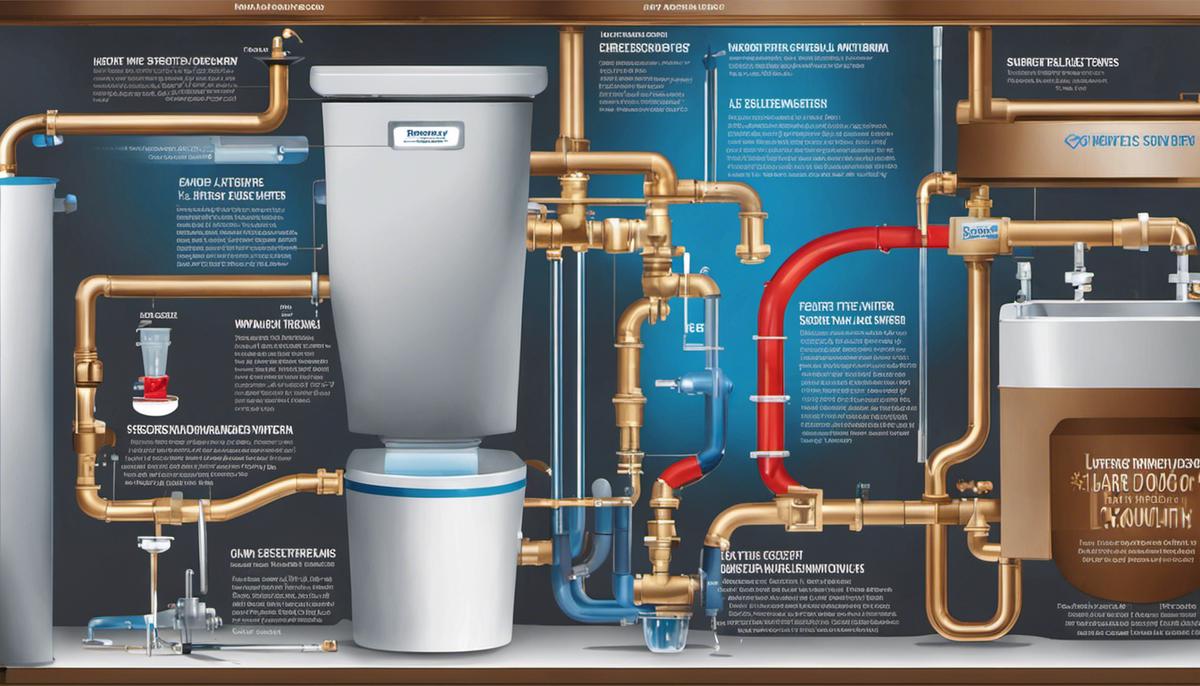
Addressing the persistent challenge of hard water is no longer just about individual comfort or affordability. It is increasingly about efficient resource usage, sustainable practices, ensuring uniform quality across different sectors and overall, a better standard of living. By drawing from our in-depth understanding of hard water problems, analyzing the gaps in current solutions, exploring innovative technologies, and assessing market feasibility, we can devise a data-driven strategy that caters to an extensive spectrum of end-users. Hard water issues then become a catalyst for growth and innovation. They open us up to sophisticated solutions that promise durability, cost-effectiveness, and an environmentally-sound future.



